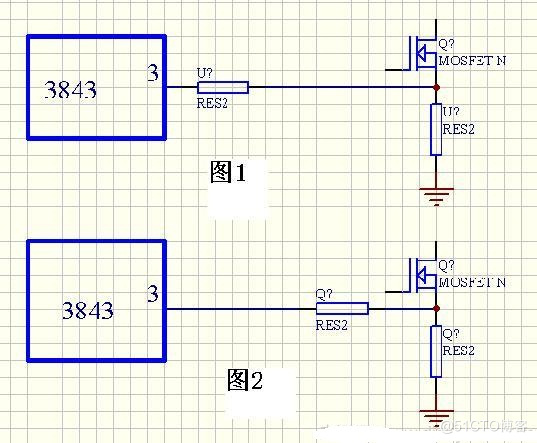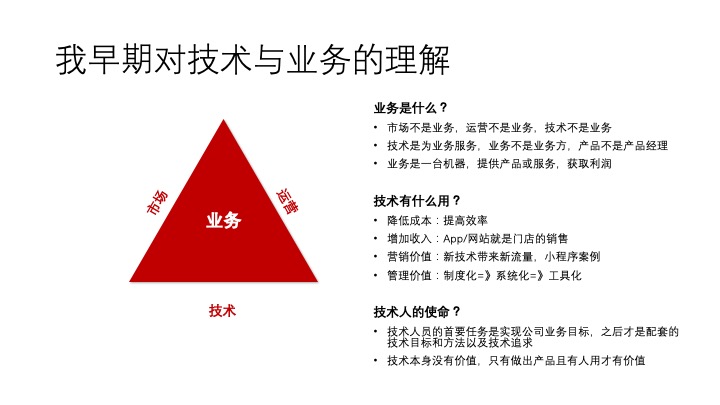当前位置:网站首页>Codeworks round 783 (Div. 2) d problem solution
Codeworks round 783 (Div. 2) d problem solution
2022-04-23 19:16:00 【ZZXzzx0_ 0】
D. Optimal Partition
The question :
Here you are. n n n Array of Numbers , You can divide this array into Several consecutive subarrays , Can't be empty .
hypothesis s [ i ] s[i] s[i] by a a a Array of Prefixes and arrays
that Continuous subarray a l a_l al a l + 1 a_{l+1} al+1 … a r a_r ar Of value by
- r − l + 1 r - l + 1 r−l+1 Premise yes : s [ r ] − s [ l − 1 ] > 0 s[r] - s[l-1] > 0 s[r]−s[l−1]>0
- 0 0 0 Premise yes : s [ r ] − s [ l − 1 ] = 0 s[r] - s[l-1] = 0 s[r]−s[l−1]=0
- − ( r − l + 1 ) -(r - l +1) −(r−l+1) Premise yes : s [ r ] − s [ l − 1 ] < 0 s[r] - s[l-1] < 0 s[r]−s[l−1]<0
Find the of several continuous subarrays The maximum value of the sum of values
Ideas :
hypothesis f [ i ] f[i] f[i] Express Only the front of the array is considered i The sum of the maximum value of the number .
From the meaning of the title have to
- f [ i ] = f [ j ] + ( i − j ) , [ s [ i ] − s [ j ] > 0 , j < i ] f[i] = f[j] + (i - j) ,[s[i]-s[j]>0,j<i] f[i]=f[j]+(i−j),[s[i]−s[j]>0,j<i]
- f [ i ] = f [ j ] , [ s [ i ] − s [ j ] = 0 , j < i ] f[i] = f[j],[s[i]-s[j]=0,j<i] f[i]=f[j],[s[i]−s[j]=0,j<i]
- f [ i ] = f [ j ] − ( i − j ) , [ s [ i ] − s [ j ] < 0 , j < i ] f[i] = f[j] - (i - j) ,[s[i]-s[j]<0,j<i] f[i]=f[j]−(i−j),[s[i]−s[j]<0,j<i]
Time complexity O n 2 On^2 On2
Consider optimizing , The above three formulas are further Simplification by
- f [ i ] − i = f [ j ] − j , [ s [ i ] > s [ j ] , j < i ] f[i] -i = f[j] - j ,[s[i]>s[j],j<i] f[i]−i=f[j]−j,[s[i]>s[j],j<i]
- f [ i ] = f [ j ] , [ s [ i ] = s [ j ] , j < i ] f[i] = f[j],[s[i]=s[j],j<i] f[i]=f[j],[s[i]=s[j],j<i]
- f [ i ] + i = f [ j ] + j , [ s [ i ] < s [ j ] , j < i ] f[i] + i = f[j] + j ,[s[i]<s[j],j<i] f[i]+i=f[j]+j,[s[i]<s[j],j<i]
consider The first formula ,
f [ i ] − i = f [ j ] − j , [ s [ i ] > s [ j ] , j < i ] f[i] -i = f[j] - j ,[s[i]>s[j],j<i] f[i]−i=f[j]−j,[s[i]>s[j],j<i]
Equivalent to
f [ i ] = m a x ( f [ j ] − j ) + i , [ s [ j ] < s [ i ] , j < i ] f[i] = max(f[j] - j)+i,[s[j]<s[i],j<i] f[i]=max(f[j]−j)+i,[s[j]<s[i],j<i]
We can take all of them s [ i ] s[i] s[i] As the subscript of the array ,
Equivalent to For each i i i, Query all Less than s [ i ] s[i] s[i] This Subscript f [ j ] − j f[j]-j f[j]−j The maximum of
consider s [ i ] s[i] s[i] Too much scope , Cannot be used as an array subscript , We can Will all s [ i ] s[i] s[i] discretization
Then query all Less than s [ i ] s[i] s[i] This Subscript f [ j ] − j f[j]-j f[j]−j The maximum of To update f [ i ] f[i] f[i]
Then on this line segment tree Update subscript to s [ i ] s[i] s[i] The value of is f [ i ] − i f[i] - i f[i]−i
The second and third expressions are the same
We can Build three segment trees ,
The maximum value of the query interval , Single point modification , that will do
Time complexity : O n l o g n Onlogn Onlogn
#include <bits/stdc++.h>
#define fer(i,a,b) for(re i = a ; i <= b ; ++ i)
#define der(i,a,b) for(re i = a ; i >= b ; -- i)
#define cf int _; cin>> _; while(_--)
#define all(x) (x).begin(),(x).end()
#define sf(x) scanf("%lld",&x)
#define re register int
#define lb lower_bound
#define int long long
#define pb push_back
using namespace std;
const int N = 5e5 + 10 , M = 1e9 , mod = 1e9 + 7 ; // mod = 998244353 ;
const double eps = 1e-7 , pi = acos(-1.0) ;
int n ;
int a[N] , s[N] ;
int f[N] ;
vector<int> q ;
struct Node
{
int l, r;
int v ; // Section [l, r] Maximum of
}tr[3][N * 4];
int d ;
int get(int x)
{
return lb(all(q) , x) - q.begin() + 1 ;
}
void pushup(int u) // Information from child nodes , To calculate the information of the parent node
{
tr[d][u].v = max(tr[d][u<<1].v,tr[d][u<<1|1].v);
}
void build(int u, int l, int r)
{
if(l == r)
{
tr[d][u] = {
l,r,-M};
}
else
{
tr[d][u] = {
l,r};
int mid = r + l >> 1 ;
build(u << 1 , l , mid );
build(u << 1 | 1 , mid + 1 , r);
pushup(u) ;
}
}
int query(int u, int l, int r)
{
if(tr[d][u].l >= l && tr[d][u].r <= r)
return tr[d][u].v ;
int v = -1e9 , minv = 1e9 ;
int mid = tr[d][u].l + tr[d][u].r >> 1 ;
if(l <= mid)
{
v = max(v,query(u << 1 , l ,r)) ;
}
if(r > mid)
{
v = max(v,query(u << 1 | 1 , l , r)) ;
}
return v ;
}
void modify(int u, int x, int v)
{
if(tr[d][u].l == x && tr[d][u].r == x) tr[d][u].v = max(v , tr[d][u].v) ;
else
{
int mid = tr[d][u].l + tr[d][u].r >> 1 ;
if(x <= mid) modify(u << 1 , x , v);
else modify(u << 1 | 1 , x ,v);
pushup(u);
}
}
signed main()
{
cf
{
cin >> n ;
fer(i,1,n) sf(a[i]) , s[i] = s[i - 1] + a[i] ;
fer(i,0,n) f[i] = -1e9 ;
f[0] = 0 ;
q.clear() ;
fer(i,0,n) q.pb(s[i]) ;
sort(all(q)) ;
q.erase( unique(all(q)) , q.end() ) ;
// d=0/1/2 Represent three segment trees respectively
fer(i,0,2)
{
d = i ;
build(1 , 1 , n + 1) ;
}
fer(i,0,2)
{
d = i ;
modify(1 , get(s[0]) , 0) ;
}
fer(i,1,n)
{
int w = get(s[i]) ;
d = 0 ;
f[i] = query(1 , 1 , w - 1) + i ;
d = 1 ;
f[i] = max(f[i] , query( 1 , w , w ) ) ;
d = 2 ;
f[i] = max(f[i] , query( 1 , w + 1 , n + 1) - i ) ;
d = 0 ;
modify(1 , w , f[i] - i) ;
d = 1 ;
modify(1 , w , f[i]) ;
d = 2 ;
modify(1 , w , f[i] + i) ;
}
cout << f[n] << "\n" ;
}
return 0 ;
}
版权声明
本文为[ZZXzzx0_ 0]所创,转载请带上原文链接,感谢
https://yzsam.com/2022/04/202204231912032594.html
边栏推荐
- SQL of contention for system time plus time in ocrale database
- An 8266 crash
- JS calculation time difference
- Is it safe to open an account in Bohai futures.
- Encyclopedia of professional terms and abbreviations in communication engineering
- Keysight has chosen what equipment to buy for you
- SQL server requires to query the information of all employees with surname 'Wang'
- Client interns of a large factory share their experience face to face
- 数据分析学习目录
- JS to get the local IP address
猜你喜欢

Partage de la conception de l'alimentation électrique de commutation et illustration des compétences en conception de l'alimentation électrique

Client interns of a large factory share their experience face to face

Why is PostgreSQL about to surpass SQL Server?

From technical system to business insight, the closing chapter of the practice of small and medium-sized R & D team structure

Reflection on the performance of some OpenGL operations in the past

为何PostgreSQL即将超越SQL Server?

开关电源设计分享及电源设计技巧图解

Using oes texture + glsurfaceview + JNI to realize player picture processing based on OpenGL es

2022.04.23 (lc_763_divided into letter interval)

Application of DCT transform
随机推荐
[记录]TypeError: this.getOptions is not a function
浅谈c语言指针的强制转换
Web Security
Pdf reference learning notes
Application of DCT transform
Openlayers 5.0 loading ArcGIS Server slice service
12个例子夯实promise基础
The type initializer for ‘Gdip‘ threw an exception
Matlab 2019 installation of deep learning toolbox model for googlenet network
Raspberry pie uses root operation, and the graphical interface uses its own file manager
Tencent map and high logo removal method
ArcMap连接 arcgis server
The platinum library cannot search the debug process records of some projection devices
Tencent cloud GPU best practices - remote development training using jupyter pycharm
2022.04.23 (the best time for lc_714_to buy and sell stocks, including handling charges)
An example of using JNI to directly access surface data
机器学习目录
White screen processing method of fulter startup page
How to uninstall easyton
mysql_linux版本的下載及安裝詳解